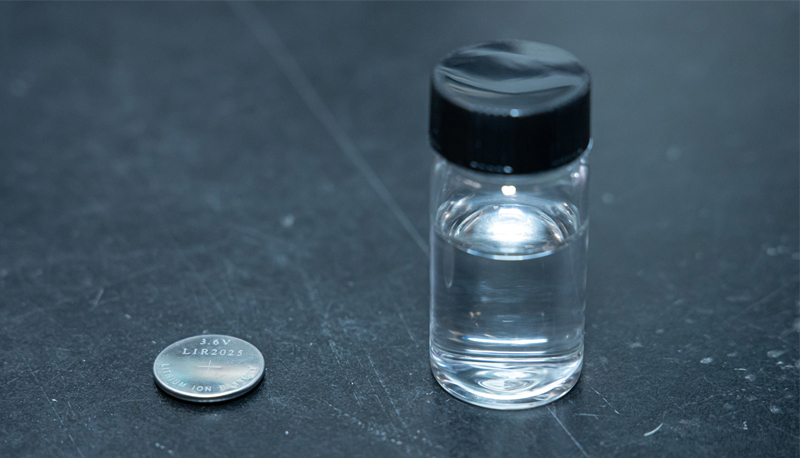
Bringing a Better, Greener Battery to Market

Professor Yi-Chun Lu creates a safer, cheaper and more environmentally friendly battery as a substitute for commercial lithium-ion batteries.
From the ancient water mills of Greece, Rome and China to today’s massive hydroelectric plants, the idea of generating power through water is not exactly new. What is new, however, is a battery created by Professor Yi-Chun Lu of CUHK’s Faculty of Engineering that replaces the electrolytes in current lithium ion batteries with a water-based electrolyte system that can reach the same voltage of lithium ion batteries. It is also non-flammable, non-toxic, and seven times cheaper.
Her ground-breaking work was published in Nature Materials.
The motivation for developing such a battery was Professor Lu’s recognition that lithium based batteries are expensive to produce, environmentally unfriendly and, most importantly, unsafe under certain conditions. Yet these high energy, rechargeable batteries are indispensable in our daily lives for running the cell phones, laptops and other electronic devices we depend on.
With the battery developed by Professor Lu and her team, there is no danger of explosion or catching fire, nor is there any risk to the environment. This has been made possible by utilising an ingredient that is commonly found in skin care creams, medicines and food additives.
Safer, Cheaper and More Environmentally Friendly
While water-based batteries have been around for many years, they have never been capable of generating sufficient voltage to make them useful. The solution developed by Professor Lu’s team was to adopt a water-soluble polymer called polyethylene glycol (PEG).
What PEG does is to act as a crowding agent, surrounding water molecules with hydrogen bonds to prevent them from decay due to changes in the water’s hydrogen-bonding structuring. As a result, the battery developed by Professor Lu’s team can successfully expand its capacity to 3.2 volts, making it competitive with the low end of the lithium-ion battery market.
‘This is a breakthrough,’ says Professor Lu. ‘PEG is commercially available as an ingredient, lightweight, and 30 to 100 times cheaper than lithium salts. It also is non-toxic and places no harm to our environments.’

Professor Lu has applied for a patent for the water-based battery, and is looking to commercialise it.
Professor Lu has applied for a patent and is working on increasing the voltage of the electrolyte and enhancing its stability. The next step is to improve the battery’s energy density and make the prototypes bigger. Her team has so far produced button batteries, but Professor Lu believes there is scope to develop batteries on a much larger scale, such as in the electricity grid.
Looking ahead, she will seek a private-sector partner with battery-manufacturing experience and battery-assembly capacity to produce and test the battery prototype. It is hoped that the final product will be ready for launch within the next three to five years.
Read more: